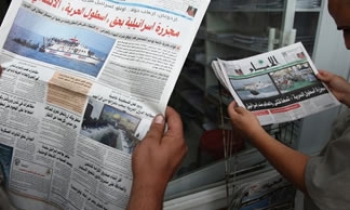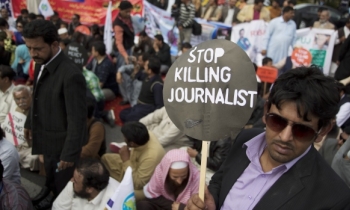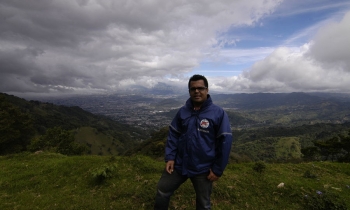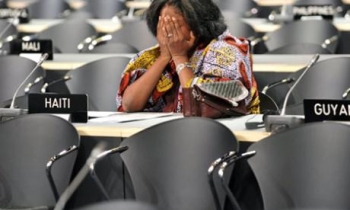The BBC's head of newsgathering has defended the corporation's coverage of the recent Middle East conflict, saying it was not considered necessary to precede its broadcasts with references to the censorship rules operated by both Israel and Hizbollah.
Responding to criticism claiming that the BBC's coverage of the Lebanon conflict has been both too pro-Israeli and too pro-Hizbollah, Fran Unsworth said today it had been decided to only refer to censorship rules when they had infringed independent reporting, but this had not occurred.
In Lebanon, Unsworth said Hizbollah had asked the BBC not to broadcast the exact locations of its rocket firing so as not to "endanger civilian lives", after one live transmission showed the site of a launch.
"We agreed that rather than begin each broadcast with a 'health warning' to audiences, we would only refer to it if it was relevant," she added on the BBC News website's editors blog.
"If rockets started to go off while were live on air, we would not show the exact location but would tell the audience that we had been asked by Hizbollah not to on the grounds they claimed it endangered civilian lives.
"In the event the situation never arose. Apart from that one incident, we have been free to report whatever we wanted."
In Israel, Unsworth said all journalists had to sign a press accreditation form stating they would not report any Hizbollah hits on military bases, any ministerial visits to the frontline, the location of rockets that land while live on air and military casualties, until permission is given.
"On the Israeli side, we agreed to refer to the censorship rules when it prevented us from reporting anything," she added.
"In practice, it never did, so we did not see the need to mention it. In practice, Israel finds these rules very hard to enforce. It is a small, talkative country and the media usually finds out about casualties quickly.
"The rolling news networks based outside the country are not bound by the censorship rules, so if they find out from other sources they will broadcast."
Criticism of the BBC's Lebanon war coverage, mainly fuelled by bloggers and columnists, has seen the corporation accused of bias towards both combatants.
Particular criticism has been levelled at BBC correspondent Orla Guerin. Bloggers have compared comments she made in a recent report about the Lebanese town of Bint Jbeil, in which she said it had "really been wiped out", with those of Channel 4's Alex Thomson, who said that even though the centre had been "destroyed on a really wholesale scale", the suburbs had been "pretty much untouched".
Others have pointed out that the BBC does not say it is reporting under censorship rules imposed by either the Israeli military or Hizbollah.
However, not everyone was satisfied with Ms Unsworth's defence of the BBC's Middle East coverage.
In a post on her editors blog, David W said: "I'm afraid this rather misses the point. Are you saying that your correspondents were free to roam south Lebanon, just so long as they didn't film live rocket fire?
"Isn't it more a case of self-censorship: that they knew that if they took footage of Hizbollah soldiers or, for example, drove through the Dahiyah suburbs of Beirut without a Hizbollah escort, then they would have their cameras taken away from them.
"Journalists seem to be great about avoiding censorship rules set by democratic governments that follow the rule of law, but rather less keen to do so when their lives may be threatened as a result."
Another poster, Aidan, added: "Your reporting on the war in Lebanon appears to have been rather superficial. Your explanation, rather than showing how censorship might have affected your correspondence, only seems to excuse weak journalism."
But JS wrote: "It simply shows that the BBC has a fairly adult attitude towards newsgathering and reporting in a situation which is potentially life-endangering for its reporters.
"If the *actual* restrictions aren't actually there, why taint a report by prefacing it with a statement which suggests that the report was made under censored or restricted conditions?"









